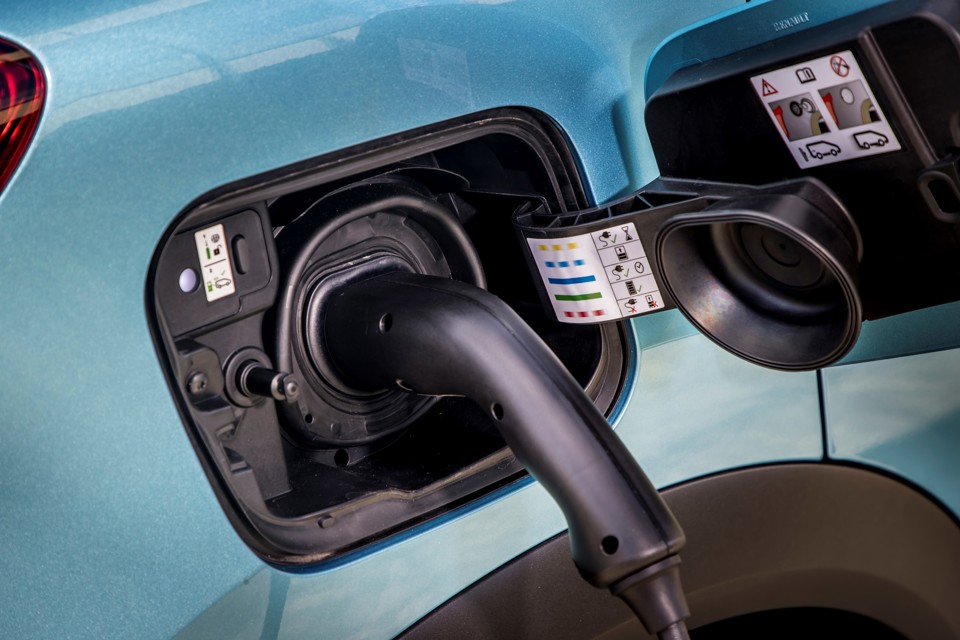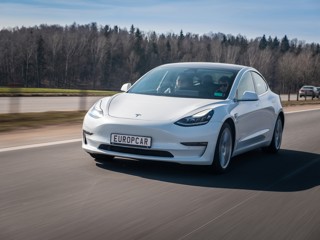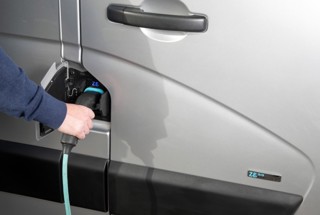Rising fuel costs are making most businesses with company cars seriously consider switching to EV and hybrid models (86%), new research from iCompario suggests.
Furthermore, it says that it is directors and chief officers who are most inclined to swap to electric vehicles (EVs) for this reason.
The survey found that a quarter (24%) of those with a fleet have already switched some – if not all – of their vehicles to battery electric vehicles (BEVs) or plug-in hybrids (PHEVs), while those in the finance sector are the most likely to have moved to an entirely ultra-low emission vehicle (ULEV) fleet already (31%).
A further 15% are in the process of swapping their petrol or diesel vehicles for low emission models, and 8% plan to do so in the future.
Barriers to switching remain though. Of those businesses with fleets, three in ten (31%) are concerned about access to charging points, a quarter (25%) believe insurance costs would be higher and 24% believe leasing costs would be higher.
A further one in five (22% and 20%) are under the impression that running and repair costs would also work out more for EV and hybrid models, than for petrol and diesel vehicles.
Concerns may be unfounded though, as over half (53%) of those surveyed reported that they have access to one or more EV charge point at their workplace already.
Analysis indicates that to provide employees with enough ‘power’ each week for all their weekly mileage, a single standard charge point (7-22kWh) could service around 16 employees.
Furthermore, the Government’s workplace charging scheme is incentivising the instalment of these by helping cover some of the cost – up to 75% of the charge point installation and £250 per socket, for up to 40 sockets.
While the current fuel crisis is encouraging more to consider ULEVs as part of their fleet, just 12% are certain that running costs would work out cheaper.
Insurance costs can work out higher, according to this latest analysis, with the average premium coming in at £67.20 more for EVs than petrol or diesel models (£619.89 versus £552.67).
Leasing costs may also be more per vehicle, depending on the models chosen with a comparison of similar petrol/diesel and EV models revealing that low-emission options can work out at around £566 more per year to lease.
However, it’s not all bad news as iCompario’s calculations indicates that – based on average mileage and current fuel and energy prices – employees and businesses alike could save as much as £904 per year on fuel costs if they swapped a petrol vehicle for an EV, while switching from a diesel model could save £775 per year.
Overall, using a rapid charge point costs around 7.4p per mile, and a slower at home/workplace charger is around 7.6p per mile.
In contrast, current fuel prices mean that a single mile in an (unleaded) petrol vehicle costs around 20p and it’s around 19p per mile for vehicles run on diesel.
Kerry Fawcett, digital director at iCompario, said: “It’s clear that the current high fuel prices are altering perceptions and timescales when it comes to moving to ULEV models.
“While fuel cards can help secure lower petrol and diesel prices ‘at the pumps’, and ease with admin too, it’s clear that further cost savings can be made if businesses are open to switching to EV and hybrid vehicles.
“We estimate that it could work out as much as £900 cheaper to ‘fuel’ an EV per year and depending on which models you go for there are also savings to be made in insurance and leasing costs too.”
Many ULEVs are exempt from road tax too (which is around £154 per year on average), while those travelling through central London can save £15 per day on the congestion charge.
Fawcett continued: “Overall, we estimated that on a per-vehicle basis, you could see a fairly conservative saving of £460-plus per year.”
Wholelife cost knowledge gap
The findings from iCompario contradict a survey from Bridgestone and Webfleet Solutions, however.
It found that more than half of fleet operators (53%) expect high energy prices to dampen demand for EVs.
The price cap on electricity increased from 21p to 28p per kWh in April and is set to rise again in October, following an Ofgem (Office of Gas and Electricity Markets) review, it said.
“Despite soaring energy prices pushing up the day-to-day running costs of electric vehicles, in most cases the wholelife cost of operating petrol or diesel equivalents remains higher,” said Andrea Manenti, vice president north region of Bridgestone EMIA.
“Electric vehicles may be more expensive to lease or purchase upfront than their fossil-fuelled counterparts, but total cost of ownership (TCO) still tends to favour electric cars and vans, with significant savings being realised by fleets that have made the transition. Parity for electric trucks is anticipated within the next three years.
“As a result, TCO calculations have become increasingly important in fleet budgeting and electrification planning.”
According to the study however, conducted among 300 fleet decision-makers, more than a third (34%) admitted to not being confident calculating an EV fleet’s TCO.
“The electric powertrain enables fleets to benefit from considerable fuel savings, with a much lower cost per mile despite the energy price hike, and with fewer moving parts, significantly lower service, maintenance and repair costs,” added Beverley Wise, regional director UK and Ireland for Webfleet Solutions.
“Other variables that should be taken into account – from insurance costs, tax liabilities and ULEZ charges to charging infrastructure and residual vehicle values – also contribute to the TCO disparity between EVs and internal combustion vehicles.
“Telematics solutions can play an important role in helping fleets calculate TCO savings by generating data insights that enable comparisons between petrol and diesel vehicle running costs and real-world EV performance, based on vehicle driving patterns.”
The research also revealed that almost two-thirds (62%) of fleets – 68% of HGV operators and 57% of van fleets – are concerned about the cost impact of clean air zones.
The same number (62%), meanwhile, believe that the Government must increase investment in transport decarbonisation and green transport initiatives if it’s to meet its transport sustainability targets.
The Government is targeting a 78% reduction in emission by 2035, compared to 1990 levels, and aims for the UK to be net zero by 2050.
> Interested in comparing electric vehicle data? Check out our EV tool.
> Interested in ensuring the efficient use of EVs. Check out our dedicated editorial sections: Insight & policy | EV news | Charging & infrastructure | Costs & incentives | Benefit-in-kind | EV case studies | EV road tests
























Login to comment
Comments
No comments have been made yet.